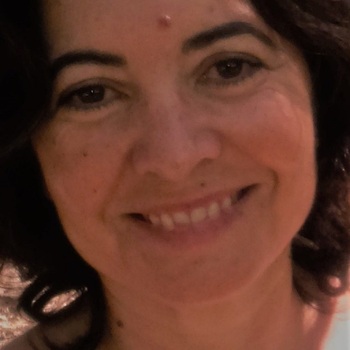Estefanía Sanz
University professor in the Department of Plastic and Visual Artistic Education of the UAM, in which she has been working since February 1991. She has a degree in Education Sciences (UNED) and Fine Arts (UCM); Master in Applied Creativity (USC), and Doctor of Fine Arts (UCM). She has a six-year research period recognized. Between 2011 and 2018, five theses directed by her have been defended, on topics related to artistic education, creativity and art therapy.
The main lines of research which she has followed are related to the following areas:
Artistic education. She has developed research around the art of childhood and youth. Since 2008 she has focused this study on comparative and international art education, and directed three research projects in which professors from various universities in Asian countries have participated (Toyama University, YunTech of Taiwan, Kookmin University of South Korea) . These investigations have studied the different cultural characteristics of the drawings made by children and adolescents of these countries, tracing the references to their cultural heritage and the influence of the culture of globalization and multinationals; Another aspect to study has been the training of teachers generalists and specialists in visual arts and the different approaches of the curricula of each country in relation to the arts and the role given to creativity and innovation in arts education in each of these countries. She has also received a scholarship from the Caja Madrid Foundation for a research stay at the University of Geneva related to art education.
Creativity as a process inherent to artistic action and education. She has carried out research in educational centers since 2003. She has been coordinator of the Doctoral Program in Applied Creativity at the Faculty of Education. She has collaborated in research projects related to training in creativity, such as an AECID project for the design of an Ibero-American Master in Applied Creativity, which was carried out together with two other universities (U. De Brasilia and U. San Carlos Guatemala) .
Art education for social justice; In this context, it is part of the PACPAC collective (collaborative artistic practices and citizenship) that promotes democratic education projects and participation through the arts.

